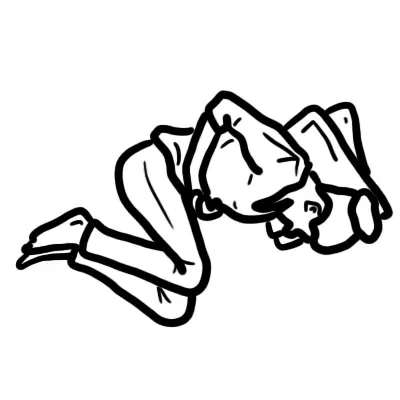Pre-menstrual Syndrome (PMS)


Premenstrual syndrome is defined as recurrent moderate psychological and physical symptoms that occur during the luteal phase of menses and resolve with menstruation. Most women of reproductive age experience one or more mild emotional or physical symptoms for one to two days before the onset of menses. These symptoms, such as breast soreness and bloating, are mild and do not cause severe distress or functional impairment, and are not considered to represent premenstrual syndrome.
PMS: Recurrent psychological or somatic symptoms (or both) occurring specifically during the luteal phase of the menstrual cycle and which resolve in the follicular phase at least by the end of mensutruation
PMDD: Is the severe form of PMS in which symptoms of anger, irritability and internal tension are prominent.
UNKNOWN
There do appear to be at least three components to the aetiology of PMS:
PMS commonly date their problems from a bout of postnatal depression. Also, they typically have depressive side effects from progestogens such as medroxyprogesterone acetate, norethisterone and levonorgestrel.
Clinical Features
Physical Symptoms
Psychological and behavioural
No need for investigation unless something sinister is suspected. It is important to make sure the signs and symptoms experienced by the woman are not occurring out side the luteal phase of the menstrual cycle. Also it is important to rule out other organise diseaes and significant psychiatric illness.
Clinical history is key to the diagnosis of PMS or PMDD. Other affective disorders such as depression and anxiety may have premenstrual cyclic worsening, but do not have the symptom-free interval during the mid-follicular phase (days 6 through 10 of the menstrual cycle) needed for the clinical diagnosis of PMS or PMDD.
Hormonal Treatment
Non-Hormonal
Selective serotonin reuptake inhibitors are effective in relieving PMS symptoms.
Self managing strategies
| Natural therapies that have positive evidence for the treatment of PMS |
| Vitamin B6 |
| Calcium |
| Magnesium |
| Evening Primose Oik |
| Premular (an extract of the berries form the chaste tree) |
| St John’s wart extract |
Women with PMS and PMDD who begin medical therapy should be monitored at least every 3 months for efficacy of the treatment. The need for treatment continuation should be reviewed regularly.
Overview
PMDD is a severe form of PMS. It occyrs in 8% of woman who are having their menstrual cycle. Genetic factors may play a role (daughters of mothers with PMDD are likely to have the disorder as well, identical twins 93%).
Risk Factors
Signs and Symptoms are similar to PMS, more severe. Occurs during the week before menstrual bleeding.
Diagnosis FIVE of more must be present for most of the late luteal phase with remission within a few days of onset of menses:
Treatment

Please confirm you want to block this member.
You will no longer be able to:
Please allow a few minutes for this process to complete.
Discussion